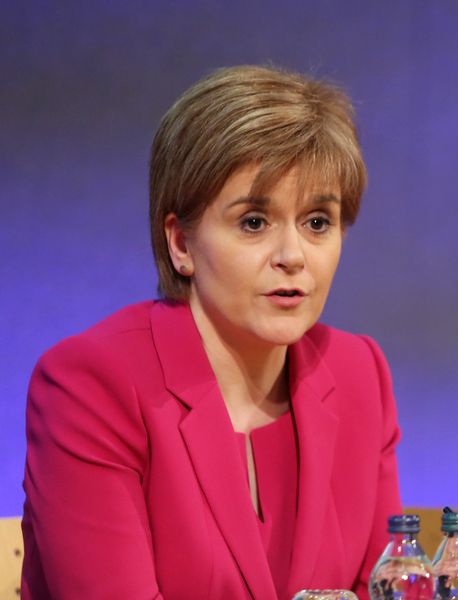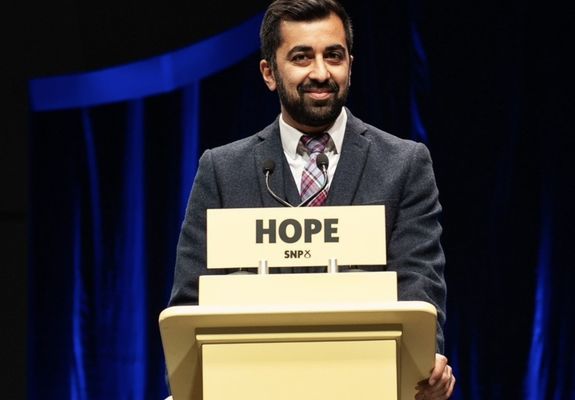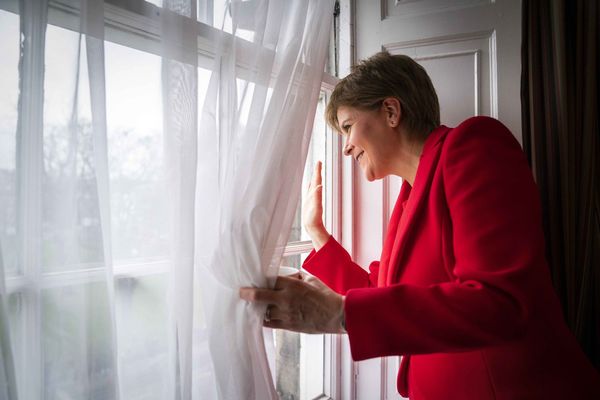SHE is – at least according to The Daily Mail – “the most dangerous woman in Britain”. Her lifelong goal is to dismantle the United Kingdom and re-establish a sovereign Scottish state.
So, at least for some observers, Nicola Sturgeon said something truly shocking last month: that she feels British.
Scotland’s First Minister – whose granny was English – has always tried to pitch her independence dream as something for everybody, wherever they are from. Her fiercest critics, of course, do not believe her.
Scottish politics, after all, can look identity driven. Take last year’s Holyrood elections. The independent academic Scottish Election Survey concluded that “nearly everyone” who said they felt “Scottish not British” voted SNP. Barely anyone who said they were “British not Scottish” did.
“Identity is a complex thing. Many people live in Scotland, are as Scottish as I am, but will have a very proud Pakistani or Indian or African identity.”
— Nikita Bassi (@NikitaBassiSNP) August 24, 2022
- @NicolaSturgeon https://t.co/fFiP5N1kv5
This, of course, does not reflect the whole gamma of overlapping national identities to be found on this side of the Sea of Moyle.
As Ms Sturgeon herself pointed out late last month in an interview at the Edinburgh Festival. “This might surprise people,” she told sports writer Graham Speirs in front of an audience, “but do you know I consider myself British as well as Scottish?”
What she then added, I thought, might make a few folk on the island of Ireland prick up their ears. “British,” she explained, “is an identity that comes from being part of the British Isles.”
Sturgeon then added: “An independent Scotland would still be part of the British–Irish Council that I go to right now as first minister.”
Now, I should stress that a fair number of Scots avoid saying things like “British Isles” – aware that not everybody likes this term – and I reckon this is particularly true of pro-independence people. And Ms Sturgeon must have noticed that the political talking shop for this archipelago is not called the “British Isles Council”.
But I think it is worth spending a bit of time understanding why somebody – to use the language of her opponents – who wants to break up Britain would talk this way.
Because “British” for Ms Sturgeon means something quite different than it does for, say, Liz Truss. The Scottish first minister is talking about what she sees as a geographical space, albeit one with some shared cultural affinities.
Nicola Sturgeon: I consider myself British as well as Scottish
— Alistair Grant (@alistairkgrant) August 24, 2022
The First Minister told an audience at the Edinburgh Fringe that identity is a "complex thing":https://t.co/kLckV4WdCj
Ms Sturgeon’s remarks fed several late summer news cycles in this Scottish media. This, for us, is a perennial issue, an old chestnut of a topic. But everybody still wants their say. Britishness, here at least, is a fascinatingly contested idea.
Some mainstream Scottish nationalists in recent decades have argued that people could stay British after independence. How? Well, largely, because in their view, “British” is a regional concept, rather like “Scandinavian” or “Iberian” or “Baltic, rather than a national identity, like Danish, Portuguese or Estonian.
This, of course, is not how most people around the world see “British”. For a few Scottish residents British is their primary national identity. For more, it is one of two shared and not necessarily exclusive national identities. But “British” for both groups, I think, means something more than “Scandinavian” does for Swedes or Norwegians.
When they are being more candid, mainstream Scottish nationalists will acknowledge a shared British cultural space too. And this, they will suggest, includes Northern Ireland and the Republic, not just Great Britain. Why do they do this?
Well, first, I guess, because they are being honest about their cultural affinities. At the risk of sounding flippant or obvious, Scots were brought up listening to tunes from Top of the Pops, not, say, the mass TV events of the San Remo and Jurmala festivals in Italy and Latvia respectively.
Don't get why Nicola Sturgeon saying she feels both Scottish and British has annoyed people
— Conor Matchett (@conor_matchett) August 27, 2022
A) Identity is complex
B) NI shows how individuals can hold both British or Irish or both identities
C) It fits with the preferred narrative of SNP nationalism being open to all...
The second reason SNP figures big up post-independence Britishness is how nationalists try to woo soft No’s, especially people with family, friends or business in England, Wales and Northern Ireland.
This explains why mainstream Scottish nationalists at the 2014 referendum suggested Scotland keep the Queen, as if the monarchy could or would provide some comfort, a sense of continuing Britishness for those whose identity was torn. What makes that gambit particularly interesting is that support for the monarchy in Scotland only runs at about 45 per cent, according to the latest polls.
Me? I think what we mean by Britishness changed several times over the centuries. Even the geographical extent of “Britain” has ebbed and flowed. The two Roman provinces of Britannia, as a crude example, occupied a very different territory to the modern United Kingdom.
I do wonder how this Scottish re-imagining of the concept would go down elsewhere in these islands. Not always well, I suspect.
Scotland is Scottish, Not British 🏴 pic.twitter.com/eq89kR6fC4
— All Under One Banner (@AUOBNOW) August 25, 2022
Why, specifically, do some Scottish nationalists like to include the Republic of Ireland in their broader concept of Britishness? Well, because they can point to a place where people – if they wish to – can watch Coronation Street, scoot about the common travel area with the UK and support Manchester United without having to have a British passport. Mind you, I am not convinced citizens of the Republic would say this makes them somehow vaguely “British”, even in the way Ms Sturgeon suggests.
Her notion of Britishness also has its critics here. There are pro-independence voices who think it is senseless, that you do not have to embrace “Britishness” to acknowledge cultural or family ties with the rest of the UK. Scottish nationalists, after all, have often talked about what they call a ‘social’ union with England, Wales and Northern Ireland surviving the end of the current political one.
Kevin McKenna: What’s the point of independence if its leader claims to be British? https://t.co/tTE04r6hSE
— The Herald Politics (@HeraldPols) August 27, 2022
There are also nationalists – political opponents of Ms Sturgeon – who were simply enraged by her remarks. The All Under One Banner marching group, for example, responded with a tweet saying “Scotland is Scottish” over an image of a woman throwing up Union Jack vomit.
Can Ms Sturgeon convince her fellow Scots to embrace a new supranational Britishness? Maybe. For many she is already pushing an open door. Might she have some luck in Wales? Perhaps. But in the rest of these islands I think she might have a hard sell.








